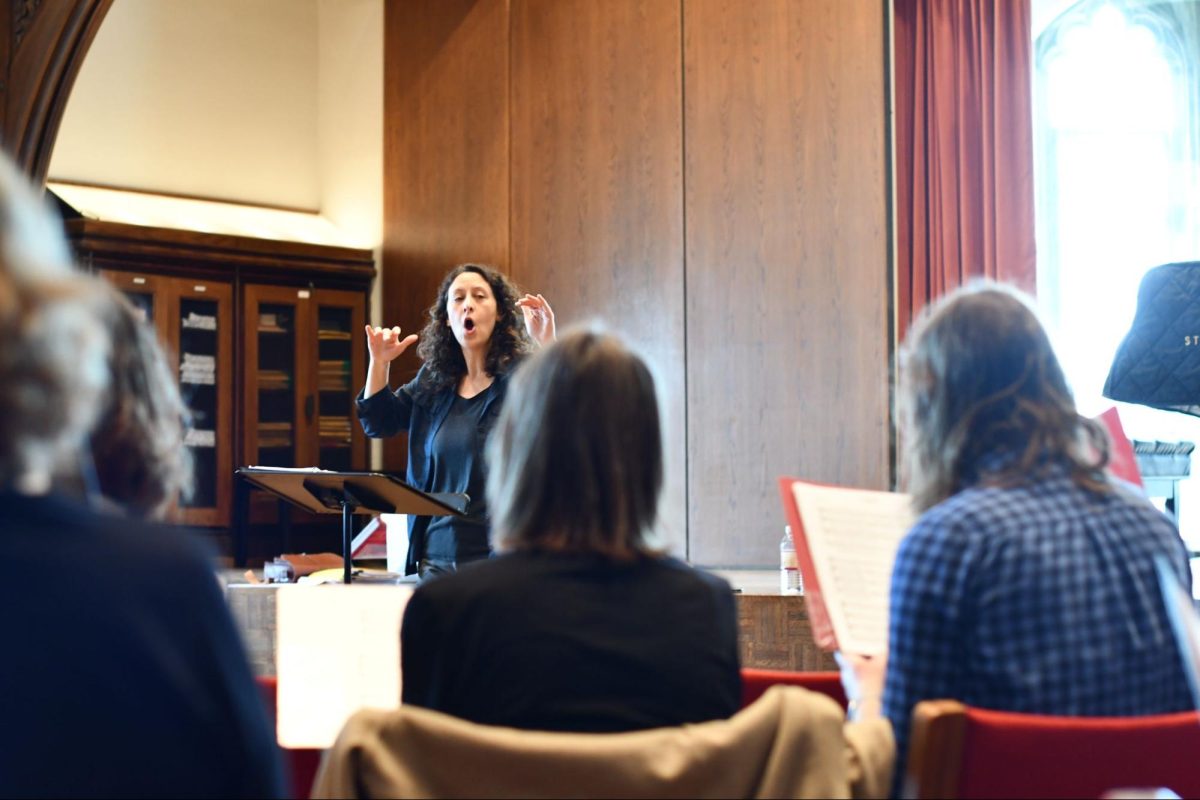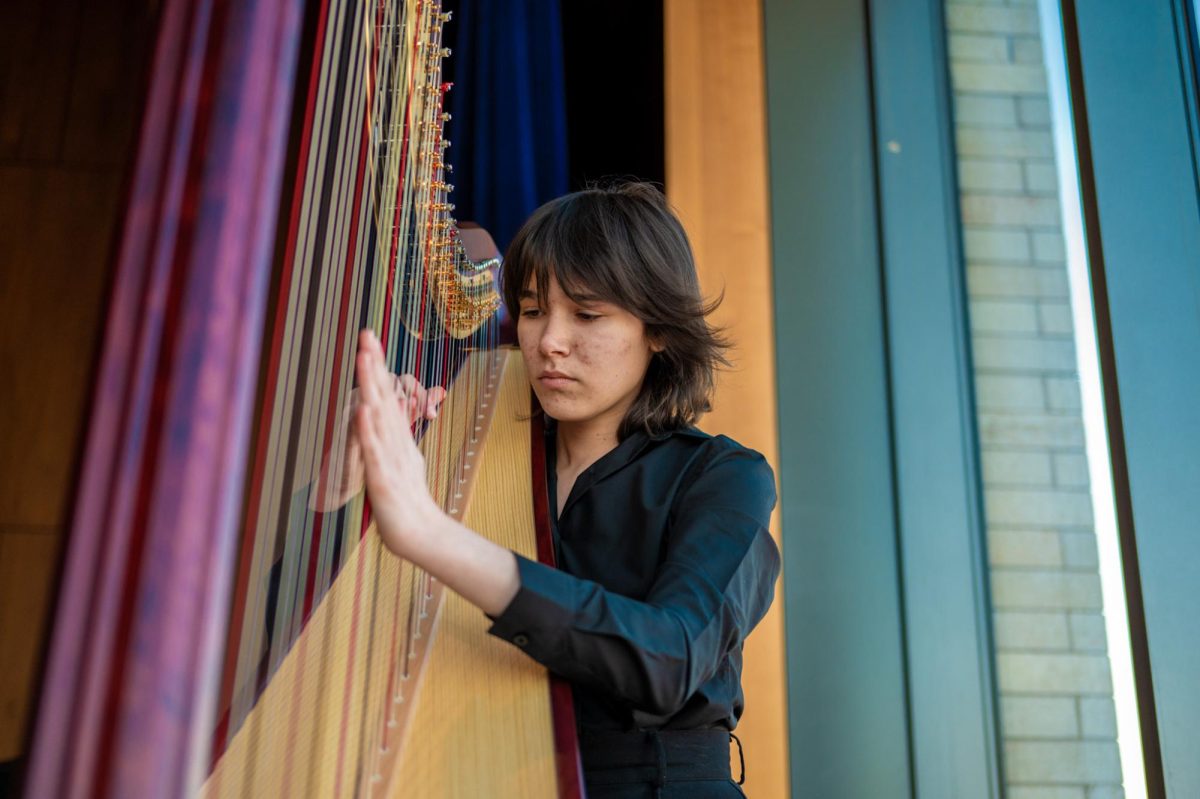Update, May 8, 10:20 a.m.: This story has been updated to correct the spelling of a person’s name.
Standing in a semicircle of red upholstered chairs, “Xa ndiyekelelwa nguwe,” the Chicago World Music Chorus wails. “Ndophalala njengamanzi,” they continue. Powerful harmonies and the sound of feet moving along the wooden floor shake the room.
Director Mollie Stone cuts off the chorus’ final note with a strong wave of her arms.
Meaning “if you abandon me my Lord, I will pour out like water,” in Xhosa, a South African language, the Chicago World Music Chorus has been learning this song for months in preparation for a May 19 concert.
Through the teaching of music in authentic style from all around the globe, the Chicago World Music Chorus, directed and founded by 1997 Lab alumna Mollie Stone, allows members to remain connected to music in adulthood and engage with a variety of cultural music.
Dr. Stone and co-director Patty Cuyler moved this monthly, three-hour intensive model to Chicago after its success in Brooklyn. They soon realized the scope of people who no longer sing as adults due to their busy schedules.
“They all shared these incredible musical memories of having sung growing up, but in reality when they hit their adult lives it’s very difficult to commit to a choir that rehearses twice a week or even once a week,” Dr. Stone said.
The once-a-month schedule allows member Sarah Elizabeth to commute from the Northwest side and participate.
“But once a month, on a Sunday afternoon when it’s daylight, I feel like I can make that happen,” Dr. Elizabeth said.
Admission into the chorus is not based on any prior musical talent or any kind of audition, a policy that makes Dr. Elizabeth feel unpressured in the environment.
“It’s not so perfectionist. It’s very inclusive, that singing is a communal and joyful experience,” she said. “Doesn’t matter if you get it, don’t get it. All right. It’s just supposed to be fun.”
Many languages are covered in each rehearsal, but Dr. Stone’s main area of expertise is South African music. Dr. Stone is often asked why South African music is such a consistent element of the core repertoire, to which she responds that learning about a culture doesn’t just take one song or one lesson, she said.
“I really believe that when you are learning how, when you’re learning music from other cultures, it’s really important to learn about those cultures, about their traditions, about their struggles, about their politics, about their language, just to really start to learn as much as possible,” she said.
Dr. Stone attributes the foundation of her love of music to her education at the Laboratory Schools.
“It was everything I learned at Lab that made me want to go into these fields,” she said.
Coming back and serving the Hyde Park community where she grew up was a very special opportunity for Dr. Stone, one she doesn’t take for granted.
“It means a lot to me to take the skills that I’ve learned,” she said, “and bring them back to serve people who are older than me, who raised my community.”





















































